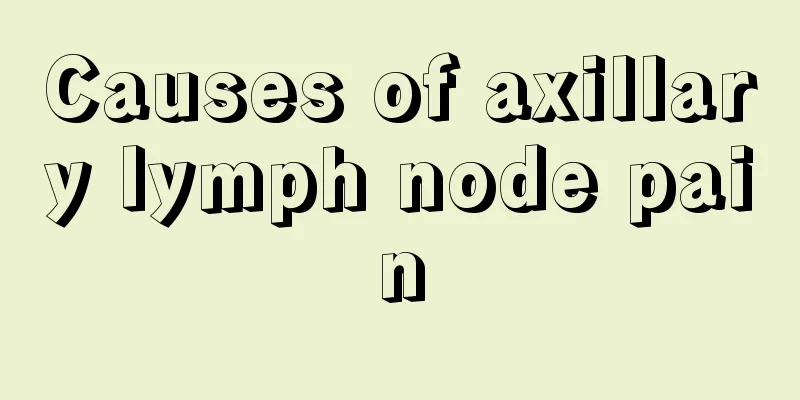Family hereditary endometrial cancer

|
Is endometrial cancer hereditary? Endometrial cancer originates from the malignant tumor of the endometrial glands, also known as uterine body cancer, and most of them are adenocarcinomas. It is one of the three major malignant tumors of the female genitals, with a high incidence age of 58 to 61 years old, accounting for about 7% of the total number of female cancers and 20 to 30% of female reproductive tract malignant tumors. The genetic factors of the disease account for about 20% of endometrial cancer patients with a family history. Since endometrial cancer is hereditary, let's take a look at the manifestations of endometrial cancer: 1. Uterine bleeding: Irregular vaginal bleeding before and after menopause is the main symptom of endometrial cancer. It is usually a small to moderate amount of bleeding, and rarely a large amount of bleeding. Not only are younger or near-menopausal patients prone to mistaking it for irregular menstruation and not seeking medical treatment in time, but even doctors often neglect it. Some individuals also have delayed menstrual cycles, but the symptoms are irregular. Postmenopausal patients often present with continuous or intermittent vaginal bleeding. Endometrial cancer patients generally do not have contact bleeding. Late bleeding may be mixed with rotten meat-like tissue. 2. Pain: Usually it does not cause pain. Advanced cancer infiltrates surrounding tissues or compresses nerves, causing pain in the lower abdomen and lumbosacral region, which radiates to the lower limbs and feet. When the cancer invades the cervix, blocks the cervical canal and causes pyometra, there will be distending pain and cramp-like pain in the lower abdomen. 3. Vaginal discharge: Because adenocarcinoma grows in the cervical cavity, the chance of infection is less than that of cervical cancer, so in the early stage, there may be only a small amount of bloody leucorrhea, but in the late stage, infection and necrosis occur, and a large amount of foul-smelling pus and blood-like fluid is discharged. Sometimes the discharge may contain small fragments of cancerous tissue. If pus accumulates in the cervical cavity, it will cause fever, abdominal pain, and leukocytosis, and the general condition will deteriorate rapidly. 4. Pelvic examination: There is no special feature in the early stage. In the late stage, the uterus becomes enlarged and full. When there is pyocerebus, the uterus becomes significantly enlarged and cystic. In the late stage, metastatic nodules can be felt beside the uterus. 5 Systemic symptoms: Patients with advanced endometrial cancer may feel an enlarged uterus in the lower abdomen, or adjacent tissues and organs may cause swelling and pain in the lower limb on that side, or compression of the ureter may cause hydroureteral pelvis or kidney atrophy on that side; or systemic symptoms may occur, such as anemia, weight loss, cachexia, fever, and systemic failure. |
<<: Does endometrial cancer have genetic factors?
>>: Is endometrial cancer hereditary?
Recommend
What are the effects and functions of tea pillows
Tea can be said to have a very long history in ou...
What are the characteristics of the early symptoms of prostate cancer
Prostate cancer is a type of cancer that men are ...
How to eliminate anxiety, experts teach us how to eliminate anxiety
It is inevitable to encounter unpleasant things i...
Will staying up late cause blackheads?
With the increasing pressure at work, many people...
The advantages and disadvantages of washing hair with Coke
The benefits of washing your hair with cola are s...
Anti-inflammatory ointment for burns and blistering
Burns are something we often encounter in our liv...
What are the dietary treatments for ovarian cancer
In recent years, ovarian cancer has become one of...
What to do if your muscles ache after exercise?
Many people will feel muscle soreness after doing...
I woke up in the middle of the night because my ears itched
When your skin is itchy and the condition does no...
Tips for ear ventilation
Sometimes the ears may become stuffy, which is ma...
Are you still dyeing your hair? I'm afraid you don't know these dangers yet
Perming can make women more beautiful and make el...
What to do if your eyes feel dry when wearing cosmetic contact lenses
Some women are born with a love of beauty. After ...
Is camellia good for the feng shui of the home?
Feng Shui is a traditional superstitious belief i...
What are the healthy diets during radiotherapy for nasopharyngeal carcinoma
In recent years, nasopharyngeal carcinoma has bec...
How to treat glioma
Glioma is a brain tumor disease. There are no sym...









